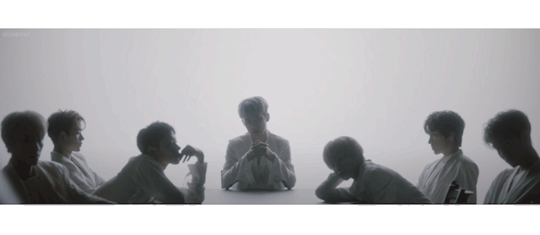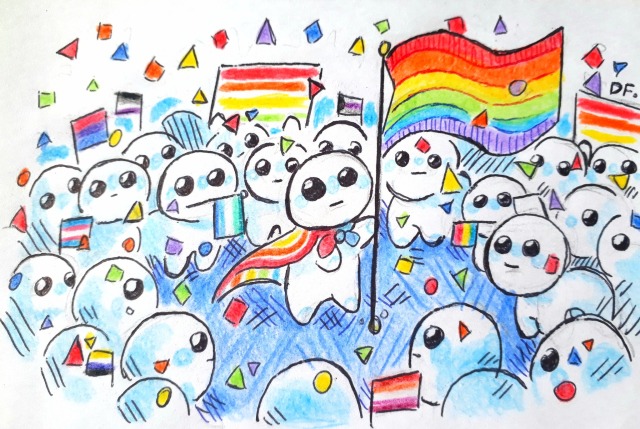#hope everyone is safe
- View the song lyrics with translations and notes here
- Watch the official music video here
- The tag for “WayV”+“NCT”
- Other vocabulary lists
grammar
- 的 (de): (possessive particle) of, -’s
- 着 (zhe): (an aspect particle indicating that an action is in progress; implies that the action will continue to happen for a while)
- 被 (bèi): (used to express the passive voice, i.e. where the object of an action becomes the subject of the sentence)
- 无 (wú): to not have [something], to lack; (when attached to a word) “-less,” “un-”
- 就像 (jiùxiàng): just like
- 像 (xiàng): (used for comparing similarities) looks like, as if
- 颗 (kē): measure word for small spheres
- 是 (shì): to be (used to connect nouns in a sentence)
- 而 (ér): (indicates [1] contrast, i.e. “yet”, “but”; [2] a causal state, i.e. “and so…”; [3] a change of state)
- 是否 (shìfǒu): (conjunction) whether or not
- 会 (huì): (a helping verb that expresses an ability or skill that one has learned) can
- 但 (dàn): (conjunction) but, yet, however, still
- 向 (xiàng): (preposition) (literally translates as “to”or “towards”, but used in the same function as “from”)
- 却 (què): (adverb) however, but (indicates that something was contrary to one’s expectations; usually followed by a negative comment)
- 在 (zài): (expresses [1] existence in a place or location; [2] that an action is ongoing/currently in progress)
- 在 (zài) + [location] + 里 (lǐ): (used to show where an object is in relation to another object)
- 将 (jiāng): (denotes that an action will occur in the near future) about to; is going to, will
- 当 (dāng): (expresses time and date) when
- 就 (jiù): (usually follows a sentence that sets up a situation, and then indicates what should be done as a result of that situation) then, just
- 把 (bǎ): (marks the following noun as a direct object of an action)
- 和 (hé): and (used to link nouns together)
verbs
- 藏 (cáng): to conceal, hide away, harbor, store
- 等待 (děngdài): to wait [for something]
- 开启 (kāiqǐ): to open, start
- 跨越 (kuàyuè): to step across, step over; to span
- 无法 (wúfǎ): to be unable, incapable [of doing something]
- 想象 (xiǎngxiàng): to imagine, picture, fancy
- 迟疑 (chíyí): to hesitate
- 怕 (pà): to fear, dread, be afraid; to be unable to endure
- 伤害 (shānghài): to harm, injure, hurt
- 保护 (bǎohù): to protect, defend, safeguard
- 传递 (chuándì): to transmit, pass [something] onto someone else
- 出 (chū): to go out, come out, appear; to occur
- 呼唤 (hūhuàn): to shout, call out [a name, etc.]
- 渴望 (kěwàng): to long for, thirst for
- 向 (xiàng): to face, approach, advance towards; to admire, revere; to side with, favor
- 借 (jiè): to lend; to borrow; to take [an opportunity]
- 颤抖 (chàndǒu): to shudder, shiver, tremble, quake
- 充满 (chōngmǎn): to be full of, brimming with; to permeate, fill
- 故作 (gùzuò): to pretend, feign
- 说 (shuō): to speak, say; to explain; to tell off, scold
- 融化 (rónghuà): to melt, thaw, dissolve; to fuse, combine, blend into
- 释放 (shìfàng): to set free, release, liberate, discharge
- 喧哗 (xuānhuá): to riot, make a racket, cause a disturbance; to clamor, make noise, be loud
- 戍守 (shùshǒu): to guard, defend, garrison
- 倾塌 (qīngtā): to collapse, fall down
- 让 (ràng): to yield, permit; to have or let someone do something; to make someone [feel something]
- 消失 (xiāoshī): to disappear, fade away
- 张开 (zhāngkāi): to open up, spread, extend
- 翱翔 (áoxiáng): to soar; to hover (at height)
- 带 (dài): to take, bring
- 穿梭 (chuānsuō): to travel/shuttle back and forth
- 显得 (xiǎnde): to seem, look, appear
- 不如 (bùrú): to not be equal to/as good as [something]; to be unable to compare [to something]; to be inferior
- 相信 (xiāngxìn): to be convinced [that something is true], accept something [as true]; to believe
- 回应 (huíyìng): to respond, answer, greet
- 听见 (tīngjiàn): to hear
- 抛开 (pāokāi): to throw out, get rid of, discard
- 压抑 (yāyì): to constrain, inhibit, repress, stifle
- 怀疑 (huáiyí): to doubt, suspect; to speculate, surmise
- 投下 (tóuxià): to drop from a height; to jettison; to cast (e.g. a shadow)
- 想念 (xiǎngniàn): to miss; to remember with longing; to long to see again
- 写 (xiě): to write
- 写给 (xiěgěi): to write to somebody
- 爱 (ài): to love, be fond of
- 留下 (liúxià): to leave behind [a scar, an impression, a person, etc.], stay behind
- 变成 (biànchéng): to change into, turn into, become
- 想起 (xiǎngqǐ): to think of, call to mind, recall
- 注视 (zhùshì): to watch attentively, gaze at
- 读懂 (dúdǒng): to read and understand
- 细语 (xìyǔ): to speak softly, whisper; to chat with a low voice
- 包围 (bāowéi): to surround, encircle, hem in
- 纪录 (jìlù): to record, take note, write down, log
- 遗忘 (yíwàng): to forget; to be forgotten
- 用 (yòng): to use, employ
- 不懂 (bùdǒng): to be unable to understand; cannot [do something]
- 翻译 (fānyì): to translate, interpret
- 离去 (líqù): to leave, exit
- 凋零 (diāolíng): to wither, wilt; to decline, decay, fade


